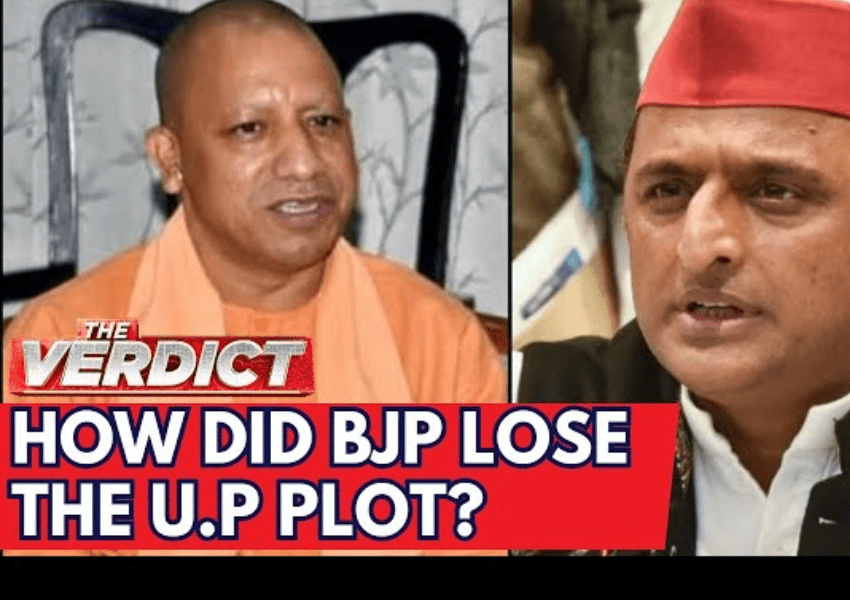The 2024 Lok Sabha elections have delivered a significant blow to the BJP and its supporters. Out of 80 seats in Uttar Pradesh, 43 have been won by the Samajwadi Party (SP) and Congress. The BJP government in Uttar Pradesh, which was credited with transforming the state, has faced an unexpected betrayal. More than half of the state fell into the strategic chessboard laid by Akhilesh Yadav, pushing the BJP into a situation where it could not secure a majority. The BJP now has to rely on the National Democratic Alliance (NDA) for support.
History Repeats Itself
This scenario is not new to Uttar Pradesh. It is a reflection of past events. Recall the year 1992, when the Babri Masjid was demolished to make way for the Ram temple. The then Chief Minister, Kalyan Singh, resigned, insisting that the Ram temple must be built. However, a year later, the electorate handed power to Mulayam Singh Yadav, whose party had previously fired on Ram devotees and kar sevaks. Today, despite Prime Minister Narendra Modi’s efforts to build the Ram temple, voters chose Mulayam Singh’s son, Akhilesh Yadav, and his party over the BJP.
The question arises: what caused the BJP’s poor performance in UP, particularly in Ayodhya? Let’s delve into the reasons.
Ram Temple Fails to Secure Votes for BJP
The Ram temple was the most discussed topic in this Lok Sabha election, taking 500 years to be built. Rebuilding the Ram temple has been a BJP election promise since its formation in 1980. BJP supporters believed this issue would increase their voter count. However, initial voting trends indicated that the Ram temple issue did not significantly impact even in Faizabad (Ayodhya). When the first trends emerged, BJP candidate MP Lallu Singh lagged behind, and the SP candidate won by about 10,000 votes.
Congress-SP Alliance Scripts Victory
The last significant alliance between Congress and SP was in the 2017 assembly elections, which did not substantially harm the BJP. At that time, BJP won 302 seats while the Congress-SP alliance secured only 47. This time, they strategized more effectively, targeting factors like reservation and Muslim vote politics to break BJP’s voter base.
Opposition’s Strategy Proved BSP as BJP’s ‘B’ Team
Opposition leaders created a reservation issue trap that ensnared both BJP and BSP, branding BSP as BJP’s ‘B’ team. This perception led BSP’s core cadre votes to shift to the Samajwadi Party without much effort.
Congress-SP Politics of Muslim Votes
A prime example is the Rampur seat in Uttar Pradesh, where the majority of voters are Muslims. Despite PM Modi’s Awas Yojana providing houses to around 532 poor families, BJP lost. Akhilesh Yadav’s party convinced Muslims that BJP would never understand their ideology, leading Muslim voters to shift easily to SP.
Casteism Boosts SP Votes
Akhilesh Yadav, belonging to the Yadav clan, benefited from caste-based voting. Yadav voters predominantly supported SP, showing that casteism played a significant role in the election.
Low Voter Turnout
The voter turnout in this Lok Sabha election dropped to around 65 percent. Many voters stayed home due to heat and other reasons. Modi’s slogan of crossing 400 likely assured people of a BJP victory, leading to voter complacency.
Also Read: LOK SABHA ELECTION 2024: The Candidate Who Made BJP’s Lotus Bloom in Kerala





